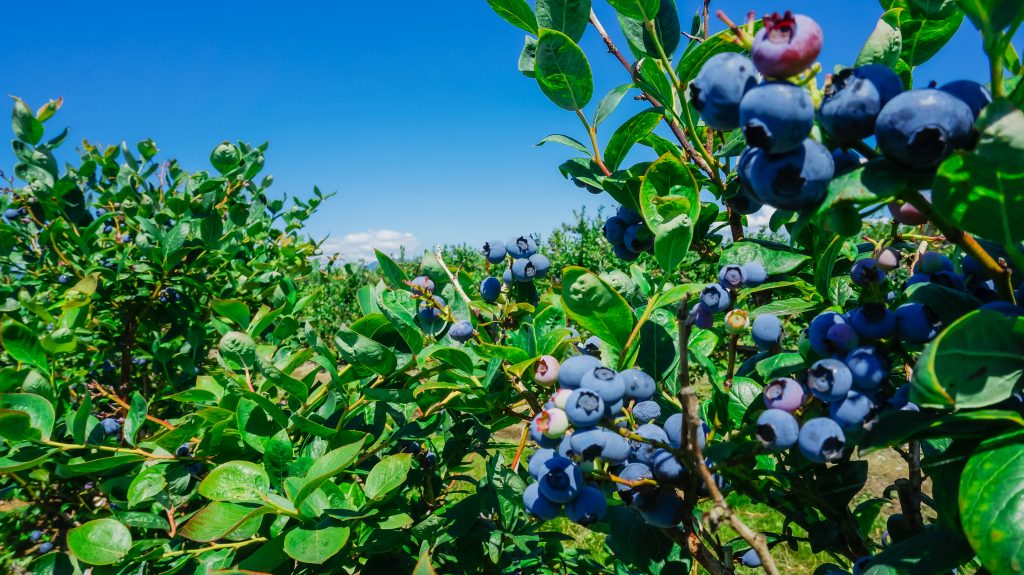Flower thrips (Frankliniella bispinosa) are insects that attack Florida blueberries and cause harm to the fruit. According to the University of Florida Institute of Food and Agricultural Sciences (UF/IFAS) research, larvae and adults feed on every part of the flowers including ovaries, styles, petals and developing fruit. The effects of this invasive species include damage to the fruit by reducing pollination, which ultimately leads to a decrease in the quantity and quality of fruit produced. Newly hatched larvae also create holes within the flower tissue and can ultimately lead to the scarring of the blueberries.

LIFE CYCLE
Flower thrips do not have a prolonged life cycle, as it typically falls between 18 to 22 days. Within these life cycles, there are two active feeding larval stages and two inactive pupae stages before becoming adults. Adults are about 1/16 of an inch in length and are typically yellowish to orange in color, with fringed wings.
WHEN TO TREAT?
The question that has been difficult to answer is when and if farmers should begin their treatment for flower thrips. It is currently recommended by UF/IFAS to begin sampling bloom clusters as soon as the flower begins to open.
Farmers should sample four to five areas per 1-acre block by placing a white sheet of paper under a flower cluster and tapping lightly. Begin counting the number of flowers in the cluster and the number of thrips that have separated the flower cluster. If there is an average of more than four thrips per flower, some type of management is recommended.
Alternatively, two white sticky traps can be used to monitor a 5-acre block (one on the border and one in the center). If there are more than 80–100 thrips, then some type of management is needed. Because blueberries are sensitive to pollination, an excessive amount of chemicals will only cause damage to the crop. Delegate is the recommended insecticide to use in the morning or late evening to allow three hours of drying time before bees are allowed to forage on the crop.
Source: UF/IFAS
Focus Key Phrase: Flower Thrips










